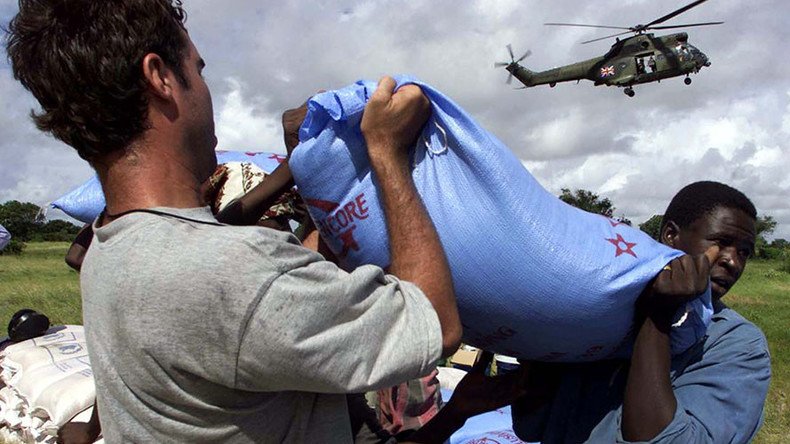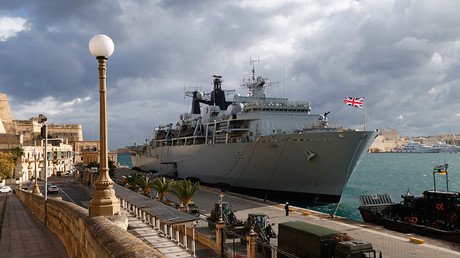Theresa May confirms Britain’s foreign aid budget will remain

Theresa May has confirmed she has no plans to cut the foreign aid budget amid concerns that doing so would risk lives, reduce Britain’s influence in the world and pave the way for mass immigration.
Britain spends 0.7 percent of GDP, or about £13 billion (US$16.6 billion), on its aid budget every year.
In the past week, the prime minister refused to say whether she would keep that in the Tories’ manifesto, with cabinet splits already emerging. On Friday, however, she confirmed the 0.7 percent aid target will remain.
Speaking to journalists in Maidenhead, where she is the local MP, she said: “Let’s be clear – the 0.7 percent commitment remains, and will remain. What we need to do, though, is to look at how that money will be spent, and make sure that we are able to spend that money in the most effective way.
“I’m very proud of the record we have, of the children around the world who are being educated as a result of what the British taxpayer is doing in terms of international aid.
“The ability we had to be able to help in the ebola crisis, the work that we’ve been doing supporting Syrian refugees – I was in Jordan a couple of weeks ago, in a school, meeting some youngsters who are being given a good-quality education. That’s one of the things the United Kingdom is providing.
“So I’m very proud of the record that we have. We’ve maintained that commitment, but we have to make sure that we’re spending that money as effectively as possible.”
Following speculation Britain was going to cut its aid budget, the president of the World Bank, Jim Yong Kim warned that finance for poor countries is the first line of defense against immigration.
Aid money helps to create jobs and opportunities in poor countries, he told the Times. With fewer opportunities in developing countries, “more and more of those countries [would go] down the path of fragility, conflict, violence, extremism and of course eventually migration.”
He added that the UK would lose influence on the world stage if the government went back on its pledge to spend 0.7 percent of its GDP on aid every year.
“It is important for people in the UK to understand just how significant that [0.7 percent pledge] was in expanding the UK’s influence in the world. It would be very unfortunate for the UK to reduce its commitment. I would say that the 0.7 percent that has been committed is critically important not just for developing countries, but for the future of the world.”
His comments come after Bill Gates, the philanthropist and founder of Microsoft, warned that a reduction in the overseas aid budget would cost lives in Africa through halted efforts to eradicate malaria.
“Malaria has always been the disease we really want to take on and the UK has always, in terms of research capacity and aid, been a leader. In terms of where the ambition gets set, the UK can be a huge leader in driving that malaria eradication, or the world may have to back off and not get started on that,” Gates told the Guardian.
Britain has been the standard bearer for development as the largest country to sign up to the UN target for aid spending. Only five countries have consistently delivered. Germany joined Britain last year, according to official data, although its aid spending includes the cost of supporting refugees in the country.
The average aid spend by other developed nations is 0.4 percent of GDP and in the US it is only 0.18 percent.
Pressure has been mounting for the UK to scrap its target that some argue encourages the funding of undeserving projects simply to meet a goal. Millions of pounds being spent on projects in China, the world’s second-largest economy, have heightened public concerns at a time of belt-tightening in the UK.
May first hinted at abandoning the aid funding pledge in an interview with the Sun. When asked whether she would continue to back the 0.7 percent commitment, she gave an evasive answer: “You’ll have to wait and read the manifesto when it comes, won’t you?”
At Prime Minister’s Questions (PMQs) on Wednesday she dodged the question again.














